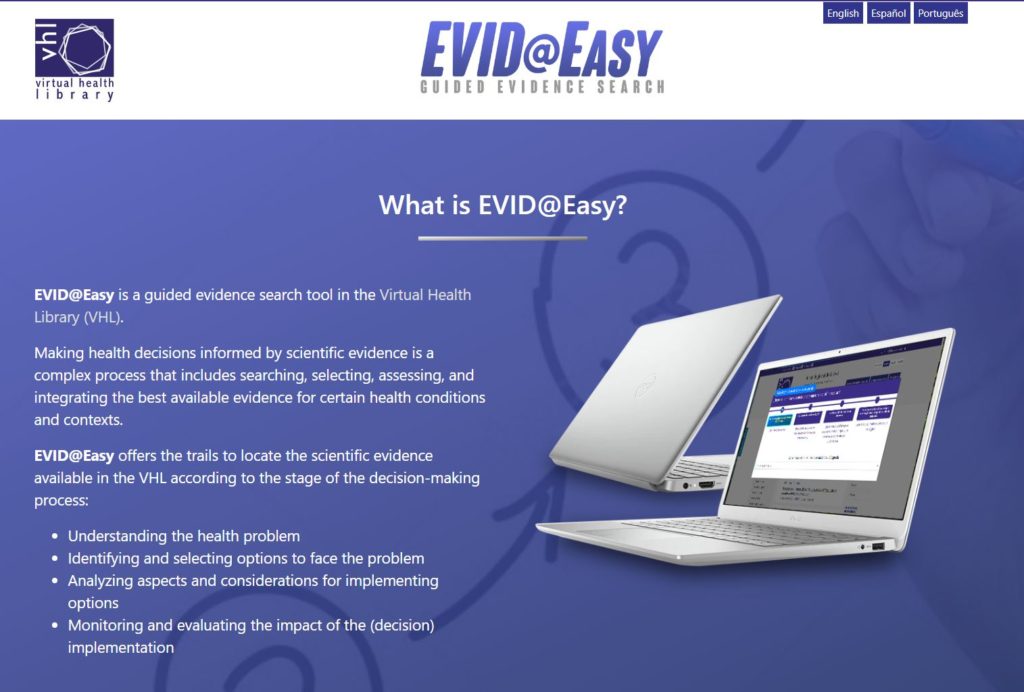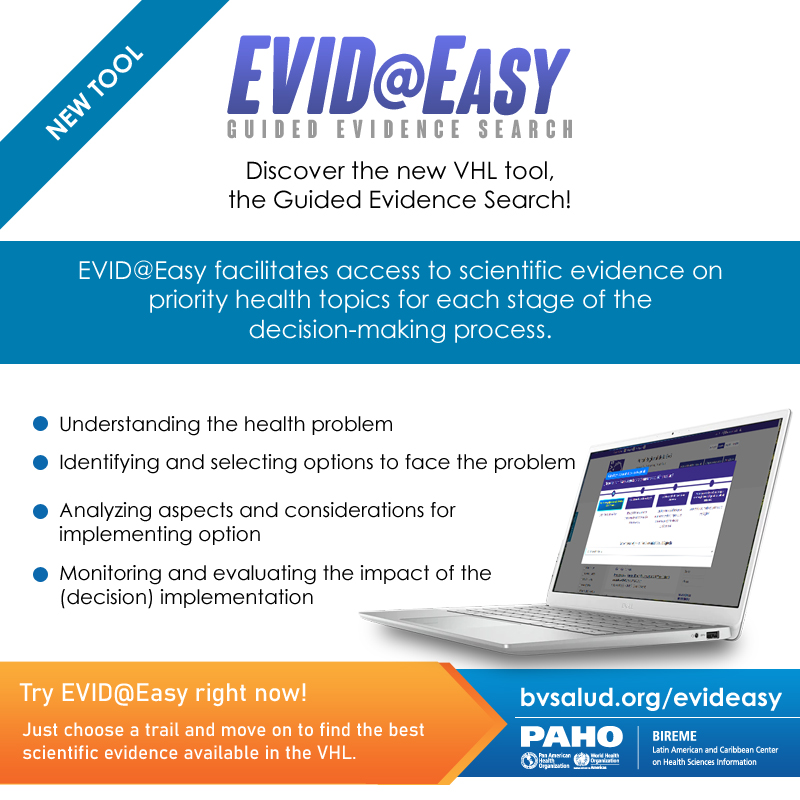Decision-making in health that is informed by scientific evidence is a process that includes finding, selecting, evaluating, and integrating the best available evidence for certain health conditions and contexts.
The Latin American and Caribbean Health Science Information Center (BIREME) and the Knowledge and Evidence Translation Program (KT), both from the Department of Evidence and Intelligence for Health Action (EIH) of the Pan American Health Organization/World Health Organization, have developed a tool that promises to revolutionize the way to find scientific evidence available at the Virtual Health Library (VHL), corresponding to each stage of the decision-making process: it is called Evid@Easy.
EVID@Easy is a tool for the guided search of evidence in the VHL in order to facilitate scientific evidence-based decision-making in health, in a process that includes the search, selection, evaluation, and integration of the best available evidence for certain health conditions and contexts.
EVID@Easy offers ways to find scientific evidence available in the VHL according to each stage of the decision-making process:
- Understanding the health problem
- Identifying and selecting options to address the problem
- Analysis of aspects and considerations for implementing options
- Monitoring and evaluation of the impact of implementation (of the decision)
EVID@Easy uses pre-designed search strategies based on the types of studies that best apply to each stage of decision-making in health. All search strategies were developed by librarians and validated by professionals specialized in formulating Evidence Informed Health Policies (PIE).
 EVID@Easy is easy to use. The user simply selects one of the topics of interest and options until they reach the search result in the VHL. According to Veronica Abdala, BIREME’s Information Sources Manager, the topics available at EVID@Easy reflect some of the health priorities of the Sustainable Development Goals (SDGs). It is just the beginning of a collection that will be updated periodically with new priority themes. The expectation is that, in fact, users will take ownership of the facilities offered by EVID@Easy, indicating new topics and suggesting improvements in the tool.
EVID@Easy is easy to use. The user simply selects one of the topics of interest and options until they reach the search result in the VHL. According to Veronica Abdala, BIREME’s Information Sources Manager, the topics available at EVID@Easy reflect some of the health priorities of the Sustainable Development Goals (SDGs). It is just the beginning of a collection that will be updated periodically with new priority themes. The expectation is that, in fact, users will take ownership of the facilities offered by EVID@Easy, indicating new topics and suggesting improvements in the tool.
Ludovic Reveiz, from the Knowledge and Evidence Translation Program, is of the opinion that “health decision-making, whether for policy or practice, is a process that requires considering various aspects such as in-depth understanding of the health problem or condition, identifying and selecting actions (options) to address the problem, analyzing the aspects and considerations for implementing these actions, and monitoring and evaluating the impact of these actions. EVID@Easy guides the user in the process of retrieving all this information in the VHL and becomes an innovative tool to support decision makers and health personnel.”
According to Renato Murasaki, Information Technology Manager, “EVID@Easy innovates the information retrieval process in the VHL because it facilitates the search for evidence by contexts and health issues, according to the user’s needs, in just four clicks, in a simple and intuitive way. This service uses intelligence behind the numerous predefined search strategies in VHL information sources, developed by specialists.”
 Try EVID@Easy right now! Choose a path and continue until you find the best scientific evidence available in the VHL.
Try EVID@Easy right now! Choose a path and continue until you find the best scientific evidence available in the VHL.